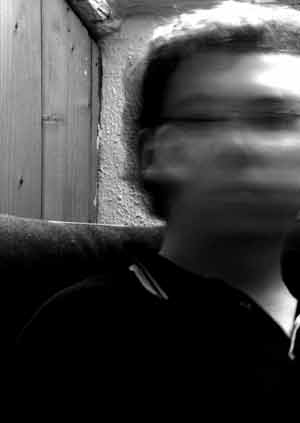"As a caring society we cannot sit back and complacently accept that terminally ill patients suffering unbearably should just continue to suffer for the good of society as a whole."
- Lord Joffe
Why is my life not one of my rights? That’s the question that no one seems to want to answer on this issue. We have a right to life, yet we don’t seem to have any right to choose to end that life if we wish. This doesn’t make any sense to me, how does a government have a say over this thing most precious and most unique to you? Yet historically governments have felt that they do have a right to tell you to sacrifice your life in war, or to take your life through the death penalty. A soldiers’ death, an ‘honourable’ death, a brave death; yet assisted suicide seems to be viewed as cowardly, unnatural, morally wrong.
Of course the God card comes out. Religious members of the House of Lords, a phalanx of bishops in particular, have argued with religious fervour against Lord Joffe’s Assisted Suicide bill and could be seen as the key force in its blocking on Friday. But their arguments are so flaccid as to be completely untenable. Rowan Williams said:
"Whether or not you believe that God enters into the consideration, it remains true that to specify even in the fairly broad terms of this bill conditions under which it would be both reasonable and legal to end your life, is to say that certain kinds of life are not worth living."
And who is he to decide if your life is worth living? He conflates the idea of personal choice with the idea of judgement and generalisation. The point is to be able to make your own decision, not have an enforced edict be it religious or secular. And it must always be a judgement call dependent on the exact situation, there is such a range of severity and so many symptoms in the category of ‘terminal illnesses’ that it must, can only be, decided by the patient.
The Bishop of London came out with "we are not autonomous beings", nicely summing up the more general line of religious argument which appeals to God as the giver and taker of life. In this context the oft-used phrase of ‘a natural death’ seems to be the wording of choice, but is actually a complete non-sequitur as it wilfully ignores the corollary of ‘a natural life’. Following this logic it seems to me that to be kept alive by doctors, operations, drugs and modern medicine is not a ‘natural life’, it is against their god’s will. So what, exactly, is natural about a death that comes slowly thanks to the prolonging of life via medicine? Are they too against modern medicine because it is not a ‘natural’ expression of god’s will? This is never mentioned, there is no argument forthcoming for the abolition of medicine, but why is a death after weeks of medication and coma, followed by the removal of feeding tubes and the withering and shutting down of the body ‘dignified’ and ‘natural’?
Or perhaps, as I might see it, nothing is inherently unnatural because we create it from elements of ourselves and our world. Is a computer unnatural? It is made from materials that surround us, uses science that governs the universe; how can anything that exists be unnatural? So medicine, the prolonging of life, as a human creation is not, cannot be, unnatural; neither then is death or suicide unnatural. Whichever line of convoluted, philosophic argument may be followed here there is an even simpler answer to the god card: I don’t believe in your god so why should I be governed by your interpretations of your god’s will? I wouldn’t expect a secular doctor to force assisted suicide on a religious patient who viewed it as wrong or sinful, neither should I expect a religious doctor to deny treatment that he regarded as sinful to a secular patient if it were requested. No matter how many times statistics are bandied about – as by the bishop who appeared on newsnight last week and answered the question of ‘why should religious leaders be allowed to have such a big say when they represent minority interests’ with ‘75% of Britons say they’re Christians’ – it still comes back to personal choice and the question of why anyone should be able to hold sway over the most personal of choices because of their faith, not your own. Anyway, to play the stats game some more, it’s worth noting that other surveys have reported 75% of people are in favour of such a bill, presumably many of these must be Christian.
Another issue here, as so often, seems to be fear and power. Religious leaders are worried that a wider debate in the Commons or by the public might lead to another blow to their power and the centuries old legacy of a church which ruled the populace by diktat and fear but now finds itself being overtaken by logic and reason and democratic debate. They espouse the view that the bill will lead to a slippery-slope of euthanasia parties, of people being put to death left, right and centre because they have a disability or a cold or can’t be bothered to go to work on a Monday, of a complete loss of the sanctity of life. This is a rather blinkered and scaremongering view, the extension of the belief that people are inherently sinners and it is only by the fear of god and divine punishment that they behave as good and decent citizens. Rubbish! Morality and ethics do not require an appeal to the supernatural. This is not to say that everyone feels the keen need to be a good person, many clearly don’t, but this has always been the case in both older, religious ages and more secular modern times.
The same ‘slippery-slope’ view of the bill has been put forward by some disabled rights groups. I can see here a slightly more legitimate fear that situations arise when disabled people may be euthanized simply because they are disabled; the argument that a loss in the sanctity of life ushers in not just mercy killings but convenience killings. But again this seems to take an unnecessarily black view of the world. No one for the slightest moment has suggested that a ‘right to die’ law means that someone with a disability will be recommended death as a cure-all. No one is saying that lots of lives aren’t worth living, simply that you should be able to make that call for yourself. Really there is no disabled rights issue here at all, simply a human rights issue that applies to everyone equally.
I have no doubt there are many other groups and issues that I’ve not touched on here, but logically and philosophically the case for the bill seems so clear-cut as to not warrant any debate apart from what legal measures should be in place to ensure that no abuses of a ‘right to die’ occur. I’ve seen death close-up, watched cancer consume my mum, watched her body slowly turn to a skeletal husk while she had no external signs of consciousness and hopefully nothing internal either. Morphine was administered, that’s allowed. Feeding tubes were removed, that’s allowed too. But a week of rasping, wheezing breath as her body died from starvation and morphine was not peaceful. A letter in today’s observer opined:
"I have watched two of my closest family members die slowly of cancer. It was a horrific process, but I would dispute that they did not die with dignity. Is being given a lethal injection dying with any more dignity?
I would be interested to know if any hospice nurse or doctor would dispute the dignity of those dying in their care. I am opposed to the Assisted Dying bill; it would lessen the dignity of our overall humanity."
I don’t understand exactly what this notion of dignity is supposed to mean, but I certainly know that I didn’t witness it. I saw pain and death, drawn out over long, long weeks. If dignity is a stiff-upper-lip, endurance through suffering, then it doesn’t sound like a good thing in this context where the end is certain. If dignity is self-respect and the ability to make your own decisions about your life, then this isn’t it. If we’ve anything in our power to stop this kind of suffering and pain then we should, that’s our obligation to ‘our overall humanity’.
Links:
-
Polly Toynbee & comments (12/05/06)
-
Observer letters (14/05/06)
-
Care not Killing (umbrella organisation against the bill)
-
RADAR (disability rights)
-
Right to die Q&A and
report on Friday’s reading of the bill-
Death with dignity-
The world federation of right to die societies



